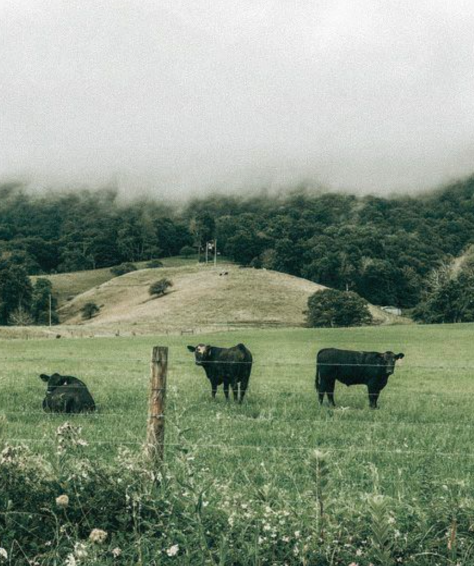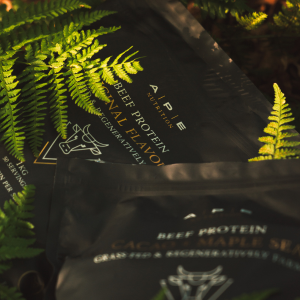The disconnection we are experiencing from nature, our ancestral roots, ways of living & eating is being pushed to the extreme. Synthetically produced meat is yet another step along this path & with its introduction beef is being heavily demonised. However, the debate around meat often only looks at factory farming and conveniently leaves out regenerative agriculture.
Cattle do an incredible job of turning grass into a micronutrient rich source of protein & fat.
Regeneratively farmed cattle also enhance soil health, which increases carbon sequestration, improves water holding capacity & supports local family businesses.
On the other hand, although plant based fake meat might look the same on paper (matched for nutritional facts; protein, carbs, fat, etc), when you dig a little deeper this isn’t the reality.
A paper by Van Vilet et al., 2020 determined that ‘171 out of 190 profiled metabolites differed between beef and commercially-available plant-based meat alternatives’.
Basically although the macronutrient profiles are similar, the expanded nutritional profile is substantially different and therefore should not be viewed as interchangeable.
Also the list of ingredients in these beef alternatives is long and generally not organic. To name a few in Beyond Beef and Impossible Burger; ‘expeller-pressed canola oil, soy protein concentrate, sunflower oil’. These sorts of ingredients are commonly associated with mono-cropping & heavy chemical use.
This type of farming is hugely detrimental to animal, human & planetary health. I’ve covered this in detail in previous posts so won’t repeat myself here but I’ll link some of the posts in my story if you want to take a look.
For me the ethically raised meat vs meat alternatives debate perfectly encapsulates a wider issue we’re experiencing in the world right now.
We’re looking towards science and technology for solutions that are already provided by nature.
Ethically Raised Meat vs Big Food Meat Alternatives






